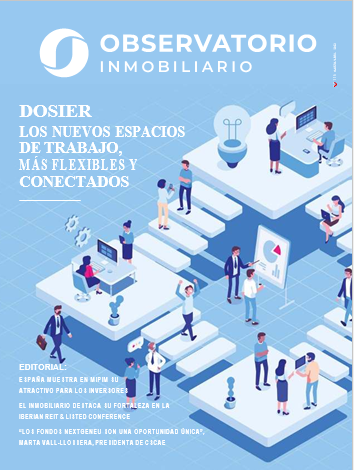Article published by Observatorio Inmobiliario, 21/04/2022
Author: Juanjo Martínez, CEO NETWORKIA
Spaces must be, above all, multipurpose. Common areas are becoming increasingly important. Flexibility is sought that allows the environment to be adapted to different uses depending on the circumstances. Facilities such as phone booths, open meetings, coffee points, stands or videoconferencing rooms are examples of this trend. On the other hand, the evolution of technology plays a major role, as it has made it possible, during this time, to manage corporate and business meetings, inside and outside the office, meeting high standards of quality and security.
Investment will continue to grow because the problem in Spain, even in Madrid and Barcelona, is the obsolescence of the office stock. Investment is concentrated in prime areas and new business areas, so buildings that are unattractive and far from these locations suffer.
In addition, certification seals such as LEED, BREEAM or WELL are on the rise and are a basic requirement for many corporations, highlighting the commitment to sustainability in all areas: the construction process, the building and the space. Health has become a fundamental objective and everything that contributes to reinforcing it is a priority. Aspects such as air quality, the creation of green spaces and quality treated water are clear examples of this.
Sustainability is an intrinsic part of the business decision-making process. It is built, managed and operated with the aim of minimising the carbon footprint. It has quickly become a filter for a good user experience. Digitalisation has led to “smart” space management, facilitating hybrid work, optimising office use and has become an element of loyalty, ensuring user engagement.

